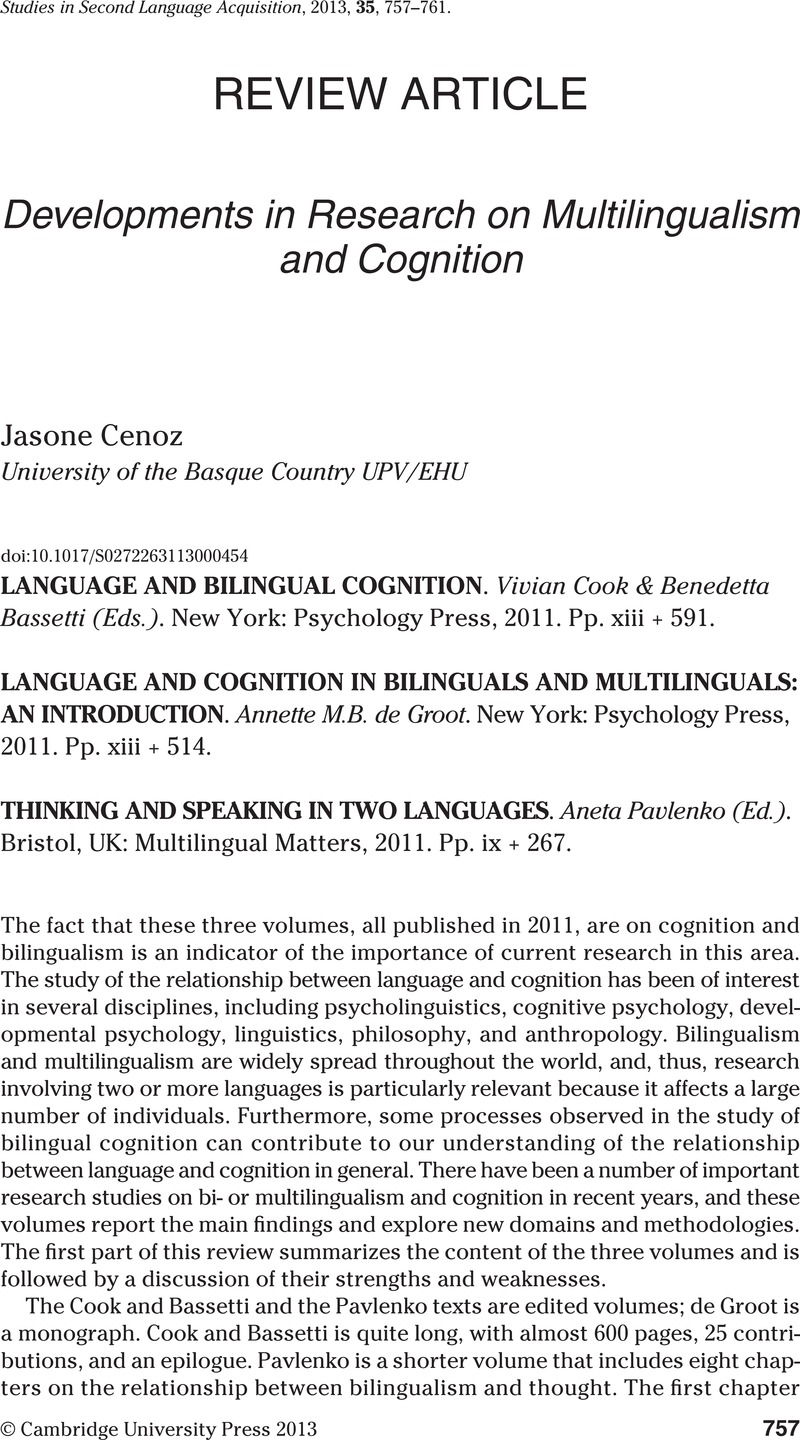Crossref Citations
This article has been cited by the following publications. This list is generated based on data provided by Crossref.
Pereira, G. R. C.
Da Silva, A. N. R.
Do Nascimento, S. S.
and
De Mesquita, J. F.
2019.
In silico analysis and molecular dynamics simulation of human superoxide dismutase 3 (SOD3) genetic variants.
Journal of Cellular Biochemistry,
Vol. 120,
Issue. 3,
p.
3583.
Warren, Leiry K.
and
Sato, Masatoshi
2024.
Multilingualism and native speakerism in academic journals’ language policies: Exploring a potential power of applied linguistics journals in promoting equitable publishing practices.
Studies in Second Language Acquisition,
p.
1.





